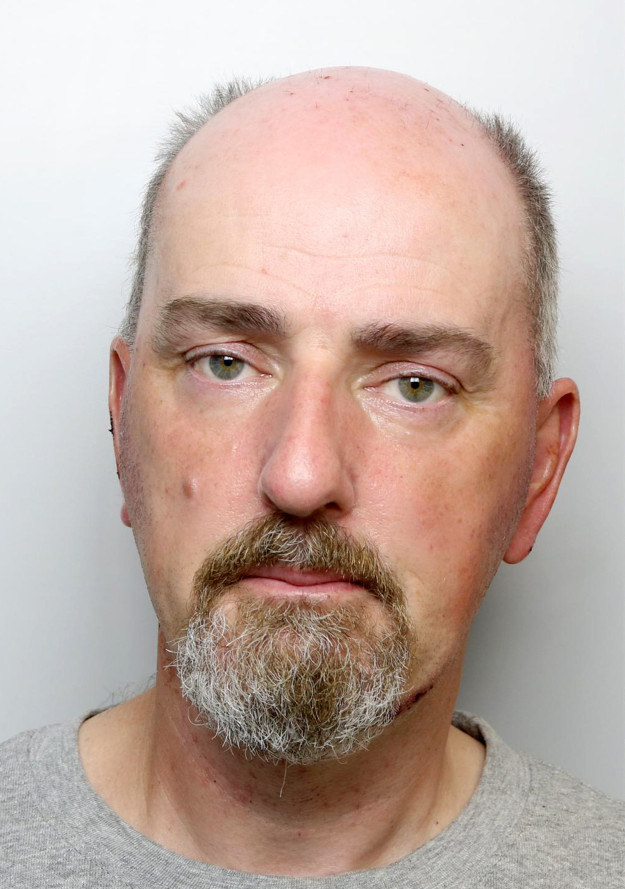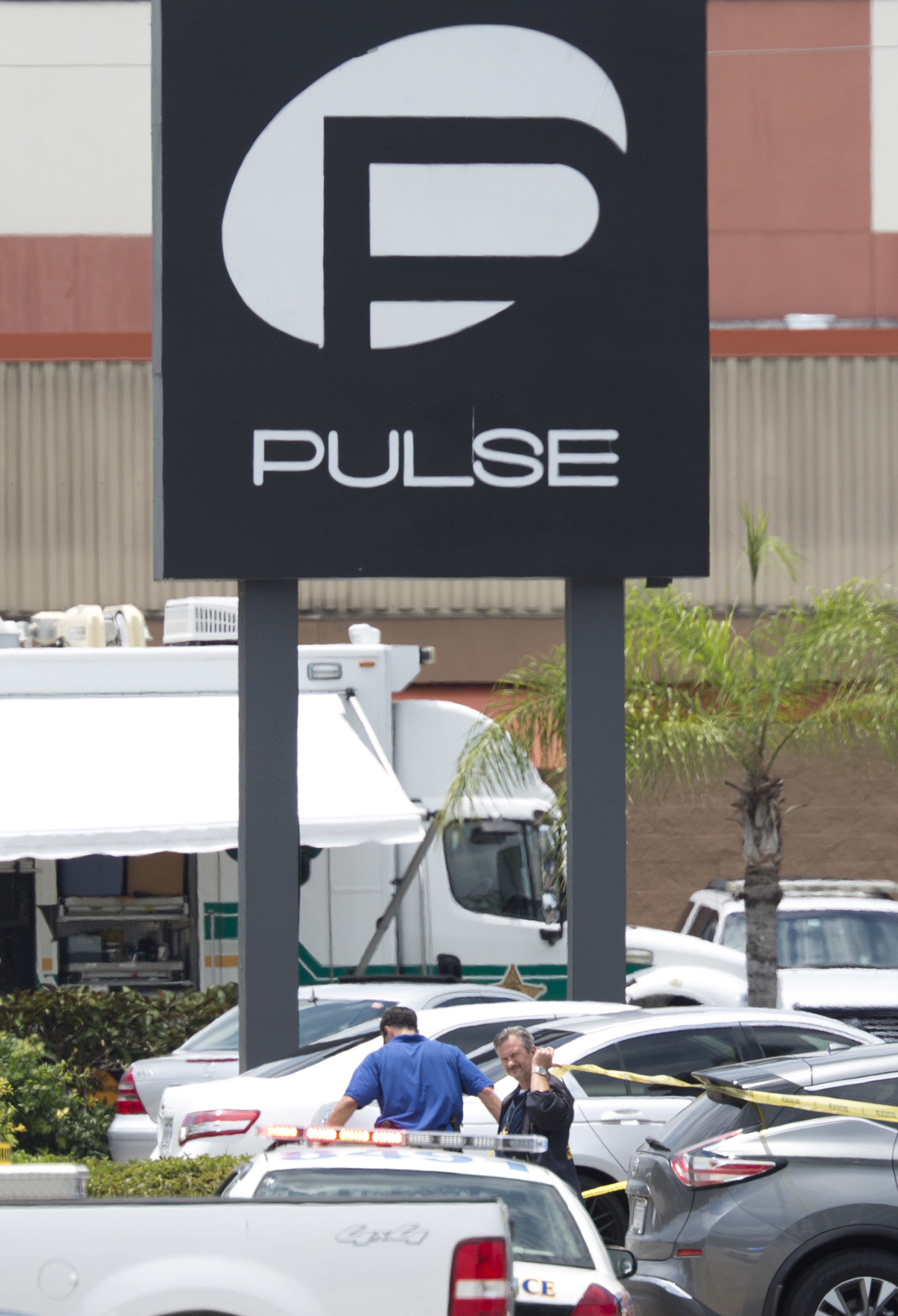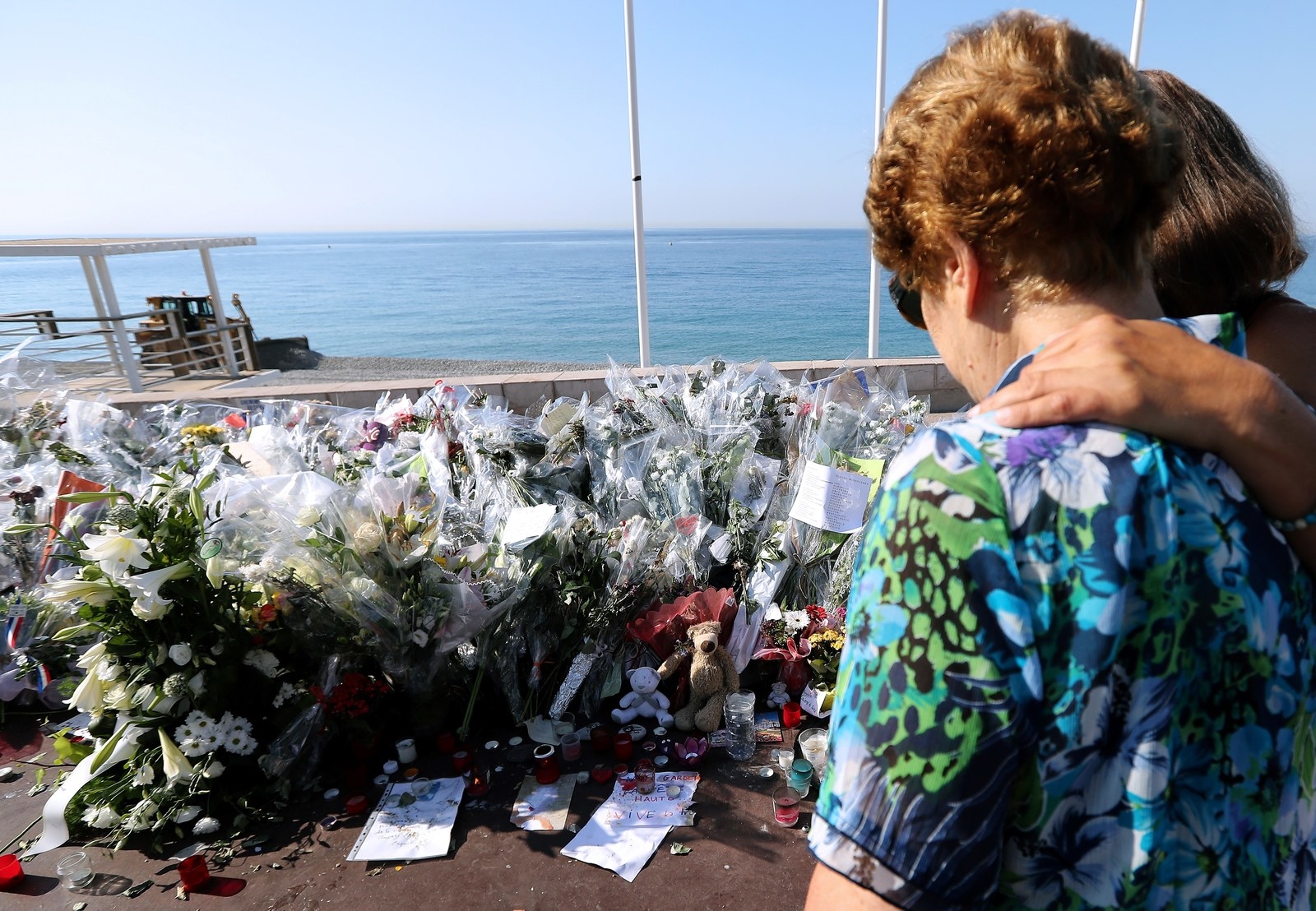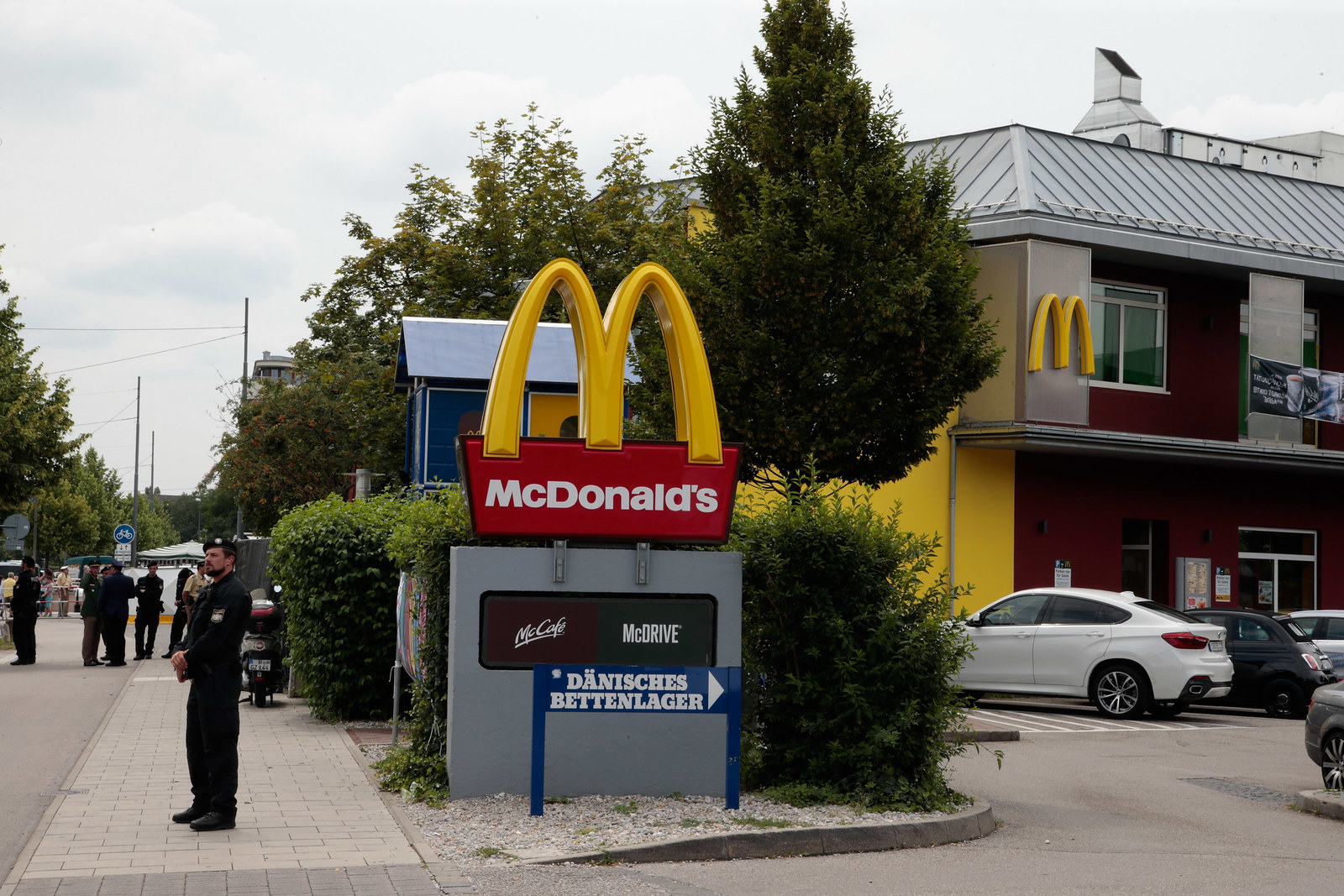
The day after Labour MP Jo Cox died, the front pages of British newspapers took very different stances on how they chose to portray her killer, Thomas Mair, who was jailed for life this week for her murder.
Only The Guardian carried a prominent mention of the fact Mair had shouted “Britain first” as he carried out the attack; in contrast, the Daily Mail described him as “a loner with a history of mental illness” and The Sun called him a “crazed loner”, even though no details of his mental state were yet known.
This split in emphasis has been played out during the reporting of a series of violent events throughout 2016. Reporters attempting to cover events in, among others, Orlando, Nice, Munich, and Birstall have tried to pin down the motivations behind those committing horrific violence as it occurs in real time.
Rohit Kachroo, ITV News’ security correspondent, told BuzzFeed News: “Counter-terror [experts] don’t come to conclusions in 10 minutes, so why do journalists expect to do so in 30 seconds?”
Mair was a terrorist, and was declared fit enough to be tried as such: a fact most of the media, with the notable exception of the Mail, made very clear once his trial was over and the risk of contempt of court vanished.

After he was found guilty of murder, Sue Hemming, head of special crime and counter-terrorism at the Crown Prosecution Service, said: “Mair has offered no explanation for his actions but the prosecution was able to demonstrate that, motivated by hate, his premeditated crimes were nothing less than acts of terrorism designed to advance his twisted ideology.” The chilling pictures of his house that came out of the trial showed that he was, without doubt, a white extremist.
But at the time of the murder, reports were reluctant to describe him in those terms. Social media users were unimpressed by the use of the word “loner” in news stories, as it carried implications regarding his mental health that distanced him from political causes.
But the word “loner” was also the one reporters on the scene – including Rossalyn Warren, who travelled to Batley to report for BuzzFeed News – heard the most frequently from those that knew him. Kachroo said it was "weird" not to class him as a terrorist while the situation unfolded – but it was also the correct way to report given the quality of evidence available.
The reality is that while the dictionary definition of terrorism – “Unlawfully using violence and intimidation, especially against civilians, in the pursuit of political aims” – is relatively broad, there’s often no way to confirm in a breaking news situation what an attacker’s agenda is. At best, reporters are reliant on unverified eyewitness claims of things they may have heard attackers say during the attack.
Verifying a terrorist attack can be hard even weeks and months after it has happened. It has been a constant challenge throughout 2016. For example, even though Omar Mateen, the man responsible for the 2016 massacre at the gay nightclub Pulse in Orlando, Florida, pledged allegiance to ISIS before carrying it out, huge question marks still remain as to his motivations – and since he killed himself, the truth will never be known.
Terror groups are often inclined to take credit for attacks to which they had little or no connection, and terrorism is far from the only possibility that tends to be suggested during a live news situation.
Mental health issues are regularly mooted as a possible cause for attacks as they unfold – and not just on social media and by journalists. In some cases, such a claim will even have its source in official police statements. But it’s a claim being made at a time when the police generally have as little insight than anyone else.
It seems British media is far quicker to ascribe mental health motivations when the terrorist is white – and the country's media culture means the coverage is often far less measured and more kneejerk than in France or Germany.
Such reporting feeds into the behaviour of our authority figures, which was laid bare when the foreign secretary, Boris Johnson, was rebuked after blaming the shooting of nine people in Munich in July on Islamic extremism, when in fact the gunman, a teenager with a history of mental health problems, appeared to have been inspired by the far-right Norwegian killer Anders Behring Breivik. German chancellor Angela Merkel, by contrast, offered no such commentary on his motives as the situation unfolded.

“The Germans are very sensible,” Charlie Beckett, a media professor at LSE and former editor of Channel 4 News, told BuzzFeed News. “It’s not necessarily better, but it is more cautious or responsible. It’s a less frantic media culture. Ours is competitive.” Referring to Tony Blair’s description of British journalists as “feral beasts”, he said such journalistic behaviour was “good with politicians, but this is different, we know ISIS love this”.
Kachroo could understand where such commentary came from: “Munich happened in the late afternoon. Instinctively people look at the bare facts. We know ISIS want to attack a shopping centre. We know that’s what security forces are prepared for. It would be stupid not to consider that this is ISIS. I was getting attacked [on Twitter] for not calling it ISIS – people were saying, ‘What’s he got to hide?’”
He added: “And the reality is, the definition of terrorism – we don’t know if it is the motive, only when you can establish it’s political, so it’s quite stupid to make judgments. Boris Johnson was way too quick. [The] suggestion was that this was probably inspired by Breivik, given the attacker was making nationalistic comments, and a recent report by Europol on the rise of the far right. Social media pressures us to come to a conclusion – to me there’s no shame in saying ‘we don’t know what caused it’.”
For Kachroo, the most important issue is that mental illness and political motivation should not be seen as possible causes that can only stand in isolation: “One-third of foreign fighters have mental illnesses, which is not to excuse what they do, but sometimes they overlap – it’s quite easy to come to a two-dimensional conclusion about what drives someone.”
Beckett felt much the same. Referring to the Nice attack that took place in July this year, when a Tunisian man drove a truck into a crowd of people on Bastille Day, killing 86, he said: “We won’t solve the problem of 'terrorism or mental health' until we know who they are. … They may be connected. It was so much easier with the IRA – the [only] question was whether they were terrorists or freedom fighters.”
Kachroo added: “With each attack people realise this is a complex picture. There’s a complicated cocktail of causes that explain it – it’s a huge problem and solutions don’t come with easy answers. They will come with trying to understand. There’s also lots of evidence that people who are vulnerable from mental health are more likely to be targeted for recruitment by [extremists]. It’s clear most people, including those in government, don’t have a handle on what can lead people to launch attacks.”

He spoke about social media criticism he has received for tweeting about the subject during breaking news situations in the past: “People have a go at me for talking about mental health conditions but if that’s a driver then that’s an important part of the story. There’s a growing anger towards journalists who highlight it. Another factor is criminal background and family background – all important questions about how they go from being a normal kid to a terrorist.”
Even this is to some degree a simplification: As The Independent's Will Gore has argued, there can be little detail in media coverage about what mental illnesses perpetrators are suffering from.
“The effect,” he wrote, “Is that we gloss over the specifics in favour of creating a kind of homogenised bogeyman figure – a religious fundamentalist afflicted by mental illness: immune to rationality, a threat to know. This is dangerous because we run the risk of conflating religious devotion with mental illness (atheist jokes aside) and of simplifying and demonising both.”
Both Beckett and Kachroo were quick to point out how the role of the journalist has changed in the digital age. “The news has changed so much," said Beckett. "People are on Twitter straight away. The reputational damage of being first but wrong is huge. Journalists are trying. They’ve realised their USP is not being a fool. It’s an evolving situation."
Kachroo said the art of reporting in such situations was based on how sceptically journalists appraised “social media, intelligence sources, and the police", and highlighted the importance of “editorial judgment, of saying what’s the most likely cause, but also our judgment to step back and not say things. It’s an old value but it’s more important given social media.”
Beckett agreed, saying: “The audience itself is unstable. When the Met police tweeted that there was no evidence of extremist links [during the recent knife attack in Russell Square], the reply [on social media] was ‘there might be’.”

This leads to another problem that has been highlighted by recent stories about “fake news” being propagated on Facebook. How responsible are social media platforms for the content shared on them?
Beckett said: “Twitter and Facebook are in a tiss, they’re intervening inconsistently. It’s one thing to accuse the Daily Mail and Guardian of putting out false information, but Twitter is publishing loads of fearmongering speech.
“They would say they’re not a media company, they’re a tech company. But it’s clear when these things happen they become much more powerful as events [due to social media] and you’ll spend much more time [as a reporter] if there’s a buzz about it. Are [the general public] the PR companies for terrorists?”
All of this means the importance of responsible journalism is huge.
Beckett said: “In a sense facts are easy – they’re either verified or they’re not. But it’s about the terms with which it’s presented and the proportion, it really makes an impact in terms of impact on community relations and also on the threat posed by the terrorists."
